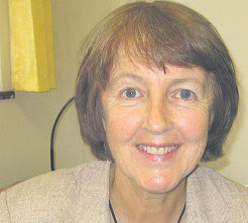
NJPN Comment in the Catholic Universe – Barbara Kentish : White privilege
‘White privilege’ is the notion I shall retain from 2020. The Black Lives Matter explosion had repercussions for all who have suffered racism, and for those like myself who have worked for anti-racism for decades. “It has brought back all those incidents of pain, anger and self-doubt that we had buried and put behind us,” said one black friend. “We’re reliving the trauma.” I, a white, felt some weariness. Many obvious things had been suggested before more black role models for our young people, recognition of black history in mainstream education, more black religious/cultural imagery, more black leaders. I can think of many reasons for the failures of anti-racists like me: unwillingness to confront injustice; economic disasters hitting black and ethnic minorities the hardest; xenophobic fury encouraged by right-wing groups, and so on. Another reason is indifference and laziness among whites, however. What a wake-up call, that the generation of young black people I myself might have once taught are becoming more vocal about racism. Reni Eddo-Lodge, author of the best-seller, Why I am no longer talking to white people about race, went to a Catholic school near where I taught. She is wounded by the blithe carelessness of white friends, indifferent to the history of slavery. My British-born friend with Jamaican parents has spent years as head of a deprived South London primary school. She tells me that she still attends teacher meetings with her inexperienced white male deputy only to find that he is assumed head, rather than herself. Such casual racism is part of white privilege, or in religious language, culpable ignorance. One black friend talks about the pervasive suspicion he encounters: the crime of ‘driving while black’, the stop-and-search, the casual assumption that black equals criminal. Recently athlete Bianca Williams and her partner were dragged from their car and separated from their baby, under stop and search powers. What can black people do? Have the energy and patience to keep on challenging white privilege. Where can white people start? Learn, urgently, about black history, not just in Black History Month, but all year round, in school and parish; listen with humility to the experiences of black neighbours and parishioners. A few of us, black and white, have produced a 2021 calendar celebrating Africans in Northern England to challenge the all-white view of Northern history. What a great learning experience for me!
For copies contact barbarakentish@talktalk.net.
Barbara Kentish White privilege



